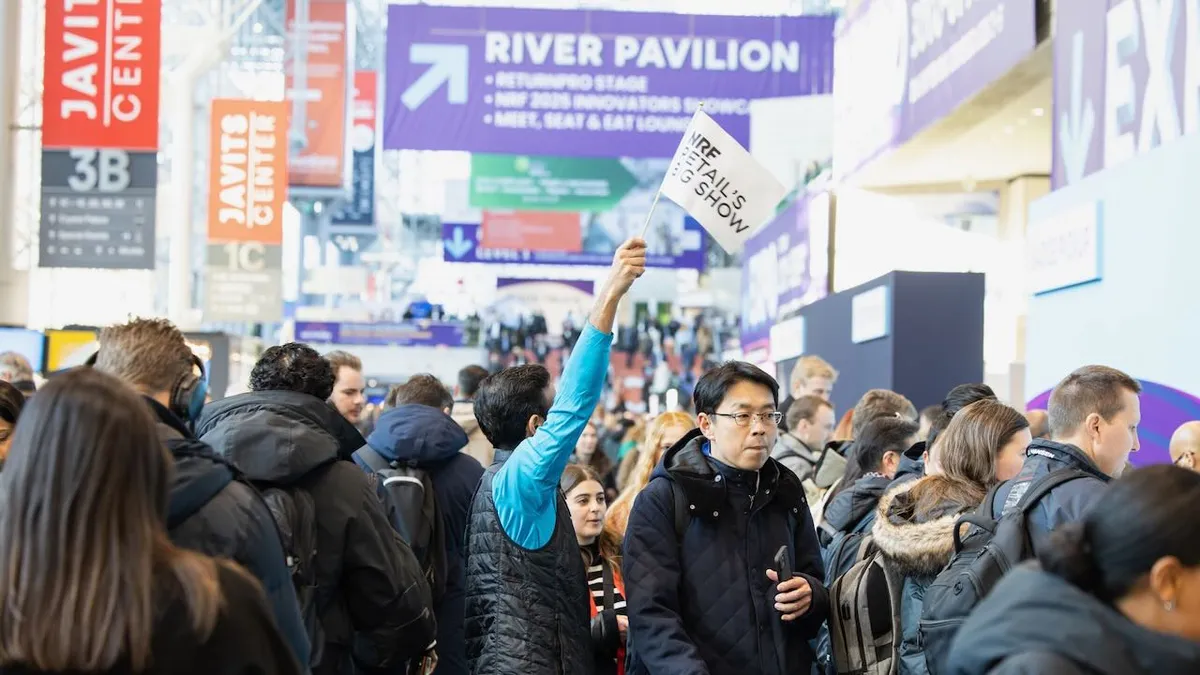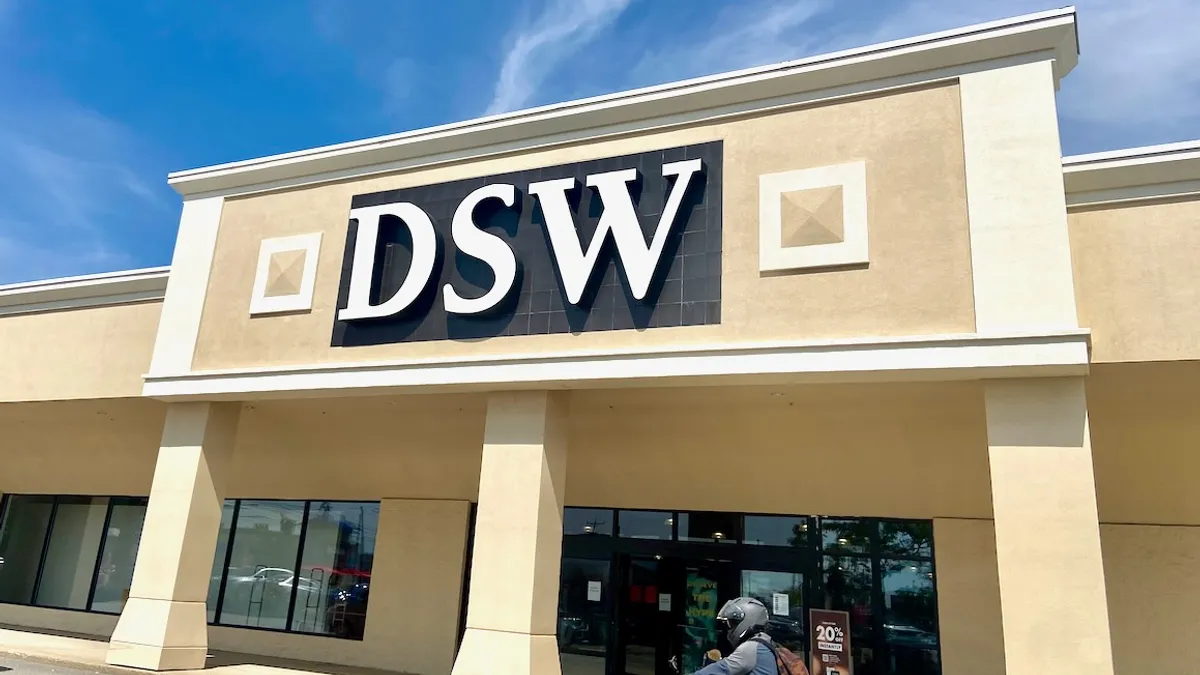NEW YORK — At the National Retail Federation’s Big Show at the Javits Center this year, the topic of AI was inescapable.
Nvidia’s Azita Martin, who is the company’s vice president and general manager for retail and CPG, helped set the tone Sunday morning, as she discussed “game-changing times for the retail industry” with Walmart U.S. chief John Furner. The next day she spoke with Lowe’s Chief Digital and Information Officer Seemantini Godbole and Randy Lack of Dell Technologies about how the home improvement retailer “leverages AI to become an agile digital retailer.”
“AI is real, and I encourage all of you to get started,” Martin told the NRF audience, after Furner noted that AI can be intimidating. “I would first of all really recommend that the AI initiatives be top-driven. In other words, you need executive sponsorship. You need to have the top executives in your company believing. The second thing I would look at is, what are some of your biggest business challenges?”
Because of the massive number of AI-related sessions, speakers and vendors at the Big Show this year, there is no way to capture all that was said on this vast topic, but here are four themes that emerged.
AI could revolutionize supply chains
Retail supply chain executives were late to the party, but have recently embraced the potential of AI to streamline and improve several processes, from forecasting and procurement to fulfillment.
The pandemic roiled supply chains, which led to inventory woes that some retailers are still grappling with. That has revealed the need for updated technologies. Nvidia itself recently unveiled Mega, a new AI product that employs a digital twin to develop, test and optimize systems before they’re actually deployed at facilities, while Lowe’s has employed digital twins at 1,700 of its stores that provide daily operational and inventory updates.
“Supply chain, more than anywhere in retail in my opinion, is going to benefit the most from AI,” Martin told Furner.
AI pumps up personalization, but privacy remains a concern
E-commerce players have long boasted that they have access to customer data that stores can’t collect, and AI is set to deploy that in fresh ways, several speakers noted during the conference.
This means a new era of digital shopping assistants and other methods of communication. Tapestry, which runs Coach, Kate Spade and Stuart Weitzman, is piloting AI-generated imagery that the company’s Vice President of Omni, Trang To, said “has the potential to unlock hyper-personalization at scale.”
“Cross-domain information feeding our AI models, to be able to deliver more insightful outputs on what the customer wants to see next, is critical,” she said. “And the second piece, historically, that has been the biggest hurdle for us in personalization is the speed at which we could create creative content to address all of these individuals versus segments. And that's something that I'm really excited about.”
But privacy remains a concern for many consumers, making it a concern for retailers as well.
“A decade ago [there was] a tug of war between privacy and personalization, and the tug of war is still going on,” Macy’s, Inc. CEO Tony Spring said during another session. “The reality is, we own the responsibility with the relationship ... We have to be better caretakers of information. We have to be smarter with the information we already have, and earn your trust over time with what we do with it.”
The use-case isn’t always clear
It was difficult to find a retailer at the Big Show that wasn’t at least piloting some AI-driven technology, in some capacity, for some area of its business. But many, if not the majority, seem to be in test mode.
“It's always going to be a learning experience, right?” Karen Etzkorn, chief information officer at Qurate Retail Group, said. “I think we find with Gen AI, every use-case we try, some of them have gotten significant value. Others we put to the side.”
At H&M, 2024 was a year of exploring AI, in the spirit of what Chief Digital Information Officer Ellen Svanström called an entreprenuerial mindset that is part of company culture.
“The interest and the exploration from our colleagues has been big in this area,” Svanström said. “However, we've yet to see a very real ... use-case that we can truly see specific and good value from, but we see enormous potential. In parallel, we have invested in and focused on and been very disciplined to build out our new data platform to ensure that we can truly scale in a secure way going forward. So, going forward, being open to what the real use-cases will be, to deliver value, we are ready to really focus and nail down on that. So I think in 2025, focus will be key for us.”
At least for now, there is no retail without humans
AI may have dominated the Big Show, but the 40,000 humans who attended it represent the billions of customers and employees who dominate the world of retail.
At American Eagle, Chief Marketing Officer Craig Brommers said the apparel retailer is approaching the use of AI with caution, in an effort to avoid the kind of high-profile AI-fueled blunders made by a few brands last year and preserve the authenticity and diversity its customers value.
In fact, AI is emerging as a tool to assist humans, rather than take over from them.
“Even in an environment where we know technology is going to play a bigger and bigger role in retail, listening to consumers and human interaction still matters,” Target CEO Brian Cornell told an NRF audience. “I think it's that balance between technology and that human interaction in retail that's going to pave the way for the future. So I think you’d better spend some time making sure you build trust, have those honest conversations, explain the ‘why.’ In a changing environment, we know it's going to be the combination, it's not an either-or. It's going to be that combination of technology that's going to fuel growth, and human interaction in retail, I believe, is going to play a role for years to come.”























